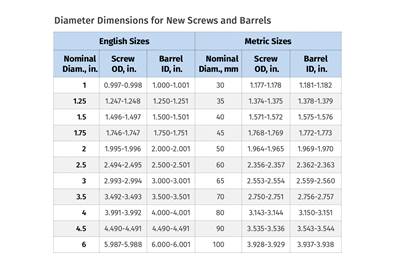Small Is Beautiful
Chris Kasmer, operations manager and co-founder of LTL Color Compounders Inc. in Morrisville, Pa., likes to point to a single green plastic button on the keyboard of his computer when he describes what LTL does: “We color that.” LTL stands for “less than truckload,” and his firm lives up to its name: An entire production run of a particular color may be no more than 50 lb.
Chris Kasmer, operations manager and co-founder of LTL Color Compounders Inc. in Morrisville, Pa., likes to point to a single green plastic button on the keyboard of his computer when he describes what LTL does: “We color that.” LTL stands for “less than truckload,” and his firm lives up to its name: An entire production run of a particular color may be no more than 50 lb. But it may need to be UL rated, and since it’s often an accent color, the color specs may be tighter than industry standards.
Kasmer and his partner, James Figariak, set up the small-lot compounding business 14 years ago with Chris’s father as its major shareholder. To keep track of over 3000 items in their aisles of materials inventory, they designed a storage and recording system modeled on the time-honored Dewey decimal system used in libraries—three numerals, a dot, two more numerals, another dot, and three final numerals.
Kasmer and Figariak are pretty sure LTL handles more diverse orders than any other compounder in the country. “It’s not that we do things nobody else can do,” says Kasmer. “We do things nobody else wants to do.” They do small lots for a lot of customers with short turnaround times of two weeks or less. LTL has over 500 customers with an average order size of 2000 lb, but it will fill orders as small as 50 lb.
LTL has 10 compounding lines, eight co-rotating twin-screws and two single-screws, ranging from a 32-mm line that extrudes just two strands to a 60-mm line with 20 strands. The smaller lines may go through as many as six product changeovers in a 24-hr day, and the larger lines may see three changeovers in that time. Having more small lines allows LTL to dedicate machines to a given material—ABS, PC, PC/ABS alloys, and crystalline polymers (PBT and nylon). Flame-retardant ABS is the firm’s biggest product.
One of the vagaries of color compounding is that even when a base resin is UL rated, it loses that rating once it’s color compounded. So for demanding applications like automotive and electronics, LTL applies for its own UL listings. Starting seven years ago, LTL began to produce a house brand of UL-rated compounds and invested in a $250,000 laboratory.
It also makes small lots of some extremely difficult materials like a 30% glass-filled crystal PS; PTFE-filled colored PC; and colored liquid-crystal polymer, which requires melt temperatures above 600 F. Some of LTL’s color requests are pretty oddball, too. “I’ve had a customer hand me a champagne bottle and say, ‘Match that,’” Kasmer recalls. He’s often asked to match a transparent color with an opaque standard or to match a PMS ink color.
‘True’ cost of short runs
When LTL started, each lot, however small, went out with a hand-filled two-page production data sheet. Then in 2003, LTL installed a production data management system from Factory Intelligence Network (FIN) in West Berlin, N.J., to collect and store data from its five most modern machines, which are PLC controlled. In the second phase, being completed now, LTL is upgrading its five older machines with Ethernet I/O modules, color touchscreens, and temperature controllers to tie into the FIN system.
The first goal for FIN was to do away with manual data collection and give managers a handle on process trends. But trending on a 50-lb lot isn’t that big a deal. The important cost factor that LTL couldn’t measure before was changeover efficiency—how to determine the cost of product changeovers. “It was hard to get a handle on how long jobs really took, including the lab time and downtime for changeovers,” Kasmer explained. “It’s not unusual to have to run a 50-lb job twice, since our color tolerances are so tight.” A Delta E of 1 is a standard color tolerance in the industry, but LTL has some custom orders that require a Delta E of less than 0.5.
Whatever LTL is doing, it’s working. The plant has doubled in size and production capacity since 2000, and its staff has grown from 25 employees to 50 today.
Read Next
How Polymer Melts in Single-Screw Extruders
Understanding how polymer melts in a single-screw extruder could help you optimize your screw design to eliminate defect-causing solid polymer fragments.
Read MoreTroubleshooting Screw and Barrel Wear in Extrusion
Extruder screws and barrels will wear over time. If you are seeing a reduction in specific rate and higher discharge temperatures, wear is the likely culprit.
Read More












 (2).jpg;maxWidth=300;quality=90)






